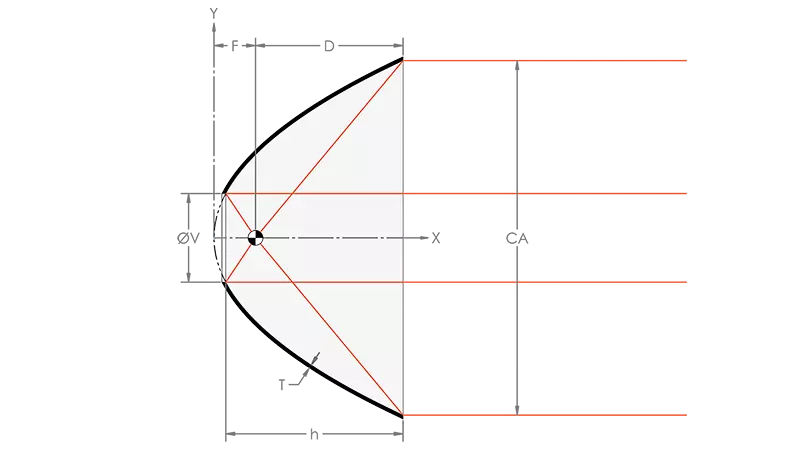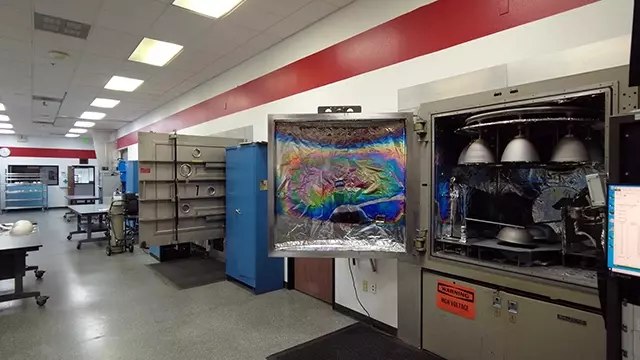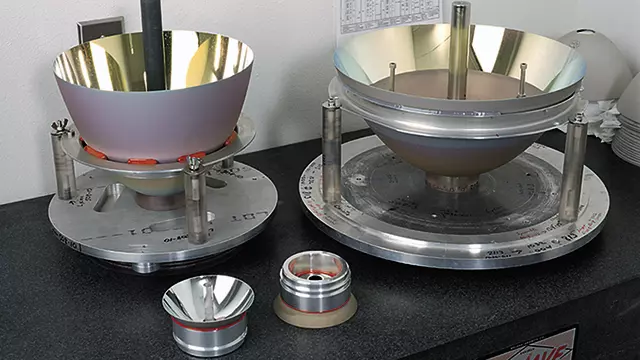Parabolic Reflectors

Parabolic Reflector Diagram
An electroformed parabolic reflector is a parabola-shaped reflective surface used to collect and direct wave energy such as light.
- Collimates a Light Source or Focuses a Collimated Beam
- Parabolic Profile Eliminates Spherical Aberration
- Surface Enhancements: Optical Coatings
Optiforms Off-the-Shelf Parabolic Reflectors
| Part Number (Click to View PDF) | F (in) | F (mm) |
|---|---|---|
| P2 | 0.080 | 2.0 |
| P2NV* | 0.080 | 2.0 |
| P5 | 0.200 | 5.1 |
| P10 | 0.400 | 10.2 |
| P10NV* | 0.400 | 10.2 |
| P10F-01 | 0.400 | 10.2 |
| P10F-02 | 0.400 | 10.2 |
| P16 | 0.625 | 15.9 |
| P19 | 0.750 | 19.1 |
| P23 | 0.900 | 22.9 |
| P25 | 1.000 | 25.4 |
| P33 | 1.300 | 33.0 |
| P38 | 1.500 | 38.1 |
| P51 | 2.000 | 50.8 |
| P60 | 2.350 | 59.7 |
| P76 | 3.000 | 76.2 |
| P102 | 4.000 | 101.6 |
| P108 | 4.250 | 108.0 |
| P174 | 6.870 | 174.5 |
| P174-01 | 6.870 | 174.5 |
| P174-02 | 6.870 | 174.5 |
Stock reflectors are coated with electro-deposited bright rhodium.
*F = Flange
*NV = No Vertex
Need a Custom Parabolic Reflector?
Custom CA and V-DIA Dimensions Available
Electroforming Process
The electroforming manufacturing method generates an exact copy via replication in metal (typically nickel) of a master mandrel by a process called electrodeposition. Specific benefits of electroforming are low unit costs, exact atomic scale, repeatability and excellent process control for quality. Often times the design engineer will find electroforming is preferred for many applications requiring a complex true geometric shape form factor, thin walls, and high repeatability.



